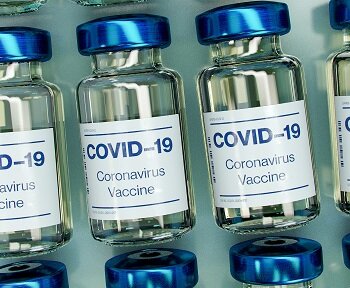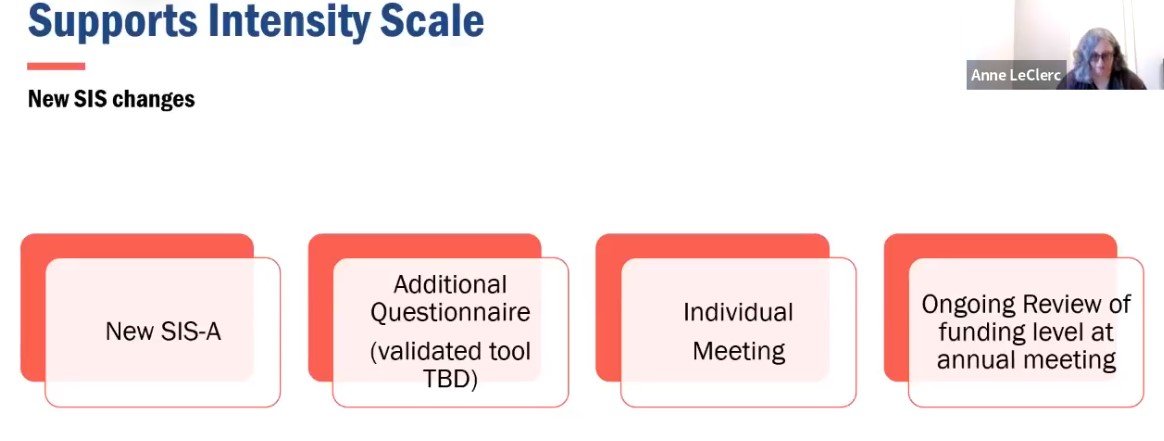COVID-19 Vaccinations Begin At RI DD Group Homes
/By Gina Macris
Rhode Islanders with developmental disabilities aged 65 and over and their group home caregivers are receiving the COVID-19 vaccine through the CVS/Walgreen partnership, according to a spokeswoman for the state Department of Health.
More than 300 group home residents and staff were vaccinated over the weekend of Jan. 16-17, said Tina Spears, a representative of private agencies who is coordinating information between the group home operators, DOH officials, and those involved directly in the vaccination process.
“We are hoping to scale up the number this week and every week thereafter,” she said Jan. 20. Spears is executive director of the Community Provider Network of Rhode Island (CPNRI), a trade association. By Jan. 21, tentative plans were being formulated to expand vaccination in the coming days to include younger group home residents with underlying medical conditions, as well as their housemates and staff, Spears said.
The DOH spokeswoman said that all adults with developmental disabilities in congregate care are included in Phase 1 of the vaccination program, with those in the 65 and older age bracket in Phase 1.2 and those younger than 65 in Phase 1.4. The spokeswoman, Anna Tomasulo, could not say exactly when Phase 1.4 would begin, or when adults with developmental disabilities who have other living arrangements might be offered the vaccine.
New Language On Support Persons In Hospitals
In a separate health-related development, DOH has put in place a COVID-19 emergency regulation which says hospitals “shall not unreasonably deny entry to support persons of an individual with a disability as defined by the Americans With Disabilities Act of 1990.”
The regulation says hospitals must provide accommodations to patients with disabilities so that they may be accompanied by as many as two support persons who can facilitate communication with hospital staff and ensure equal access to treatment and informed consent. Notices about the regulations must be posted in English and a minimum of three other languages commonly used by patients and staff in conspicuous places in the hospitals, along with a DOH telephone number to call with concerns.
Disability Rights Rhode Island (DRRI) led a led a push for the new regulation, which previously had been expressed as a matter of policy and unevenly adopted by hospitals, resulting in dozens of complaints that continued throughout 2020.
Morna Murray, executive director of DRRI, said, “We hope this language will go a long way toward educating everyone about the rights of individuals with disabilities to access their own health care.That is what having an essential support person is all about.”
“We will be monitoring the situation and are cautiously hopeful that this more rigorous regulatory language will be consistently implemented,” Murray said in a statement.
Access to COVID-19 vaccine remains another hurdle for advocates of adults with developmental disabilities in Rhode Island and throughout the country.
The American Academy of Developmental Medicine and Dentistry (AADMD) and other organizations have cited research highlighting COVID risks for adults with developmental disabilities, who as a group tend to have a higher rate of underlying medical conditions than the general public and are less likely to be able to follow mask-wearing and personal hygiene guidelines.
In December, the federal Centers for Disease Control (CDC) put Down syndrome on the list of those who should be vaccinated. But the CDC also says that “most people with developmental or behavioral disorders are not naturally at higher risk for becoming infected with or having severe illness from COVID-19,” a statement highlighted by Tomasulo, the DOH spokeswoman.
She said that the federal Advisory Committee on Immunization Practices (ACIP) makes recommendations to the CDC for the entire nation, while Rhode Island’s Vaccine Advisory Subcommittee “reviews these recommendations and determines how best to apply them to Rhode Island’s unique demography.
She offered two links for comparing the CDC recommendations for vaccine prioritization and the DOH Phase 1 plan:
Tomasulo continued: “We want all Rhode Islanders who want to be vaccinated to get vaccinated. However, our supply is limited. Our Phase 1 priorities are to ensure that our healthcare infrastructure is able to continue to respond to the COVID-19 pandemic, and to protect those most at risk in long-term care facilities. As supply allows, we move on to other priority populations.”
Within Phase 1, one group may start receiving the vaccine before a previous group is completed, depending on the vaccine supply and the resources to administer it, she said.











